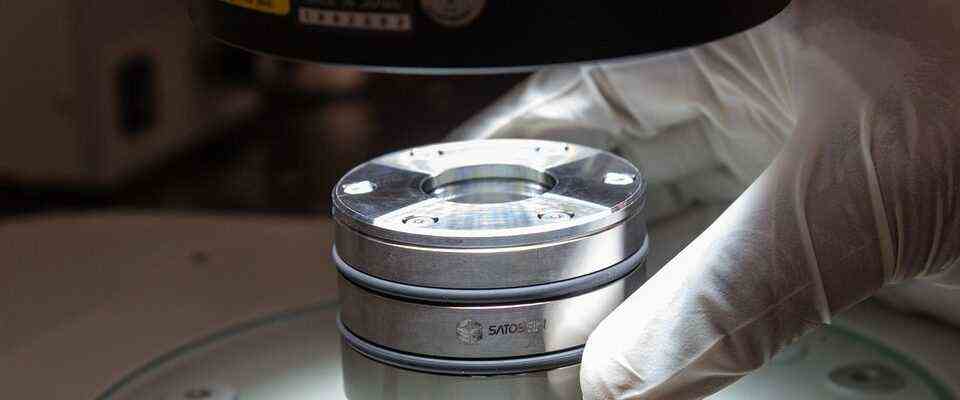He is an extremely interesting celestial body: (162173) Ryugu. The asteroid with the Japanese name (in German “Drachenpalast”) was discovered in 1999 and flies in a low-earth orbit around the sun. In 2014 the Hayabusa2 spacecraft went to him to take samples, In 2020 she returned to earth. A first evaluation by an international team of researchers has now been completed and published in two articles in the specialist journal “Nature Astronomy” released: One led by Toru Yada at the Japan Aerospace Exploration Agency and one by Cédric Pilorget at the French Université Paris-Saclay.
In Yamada’s study, the researchers discovered that the sample taken reflects only two percent of sunlight and is therefore very dark. In addition, their porosity is 46 percent higher than that of any meteorite examined so far. Pilorget and his colleagues also analyzed the sample with a special microscope that also covers infrared waves. They discovered that the material consists of many different substances that are held together by water molecules – similar to clay. Carbonates were also found in the sample, i.e. salts of carbonic acid that often occur as minerals on earth.

